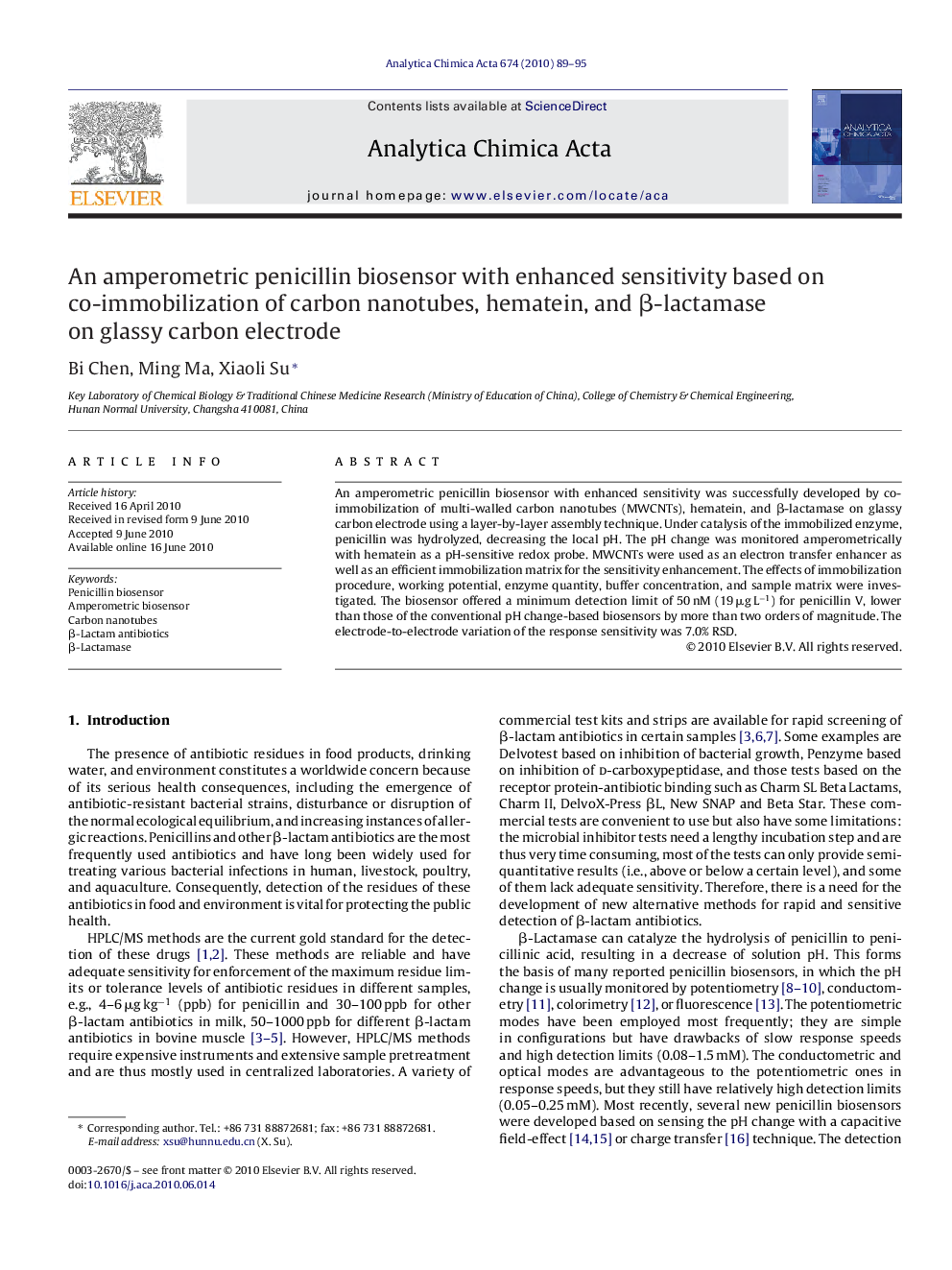| Article ID | Journal | Published Year | Pages | File Type |
|---|---|---|---|---|
| 1167397 | Analytica Chimica Acta | 2010 | 7 Pages |
An amperometric penicillin biosensor with enhanced sensitivity was successfully developed by co-immobilization of multi-walled carbon nanotubes (MWCNTs), hematein, and β-lactamase on glassy carbon electrode using a layer-by-layer assembly technique. Under catalysis of the immobilized enzyme, penicillin was hydrolyzed, decreasing the local pH. The pH change was monitored amperometrically with hematein as a pH-sensitive redox probe. MWCNTs were used as an electron transfer enhancer as well as an efficient immobilization matrix for the sensitivity enhancement. The effects of immobilization procedure, working potential, enzyme quantity, buffer concentration, and sample matrix were investigated. The biosensor offered a minimum detection limit of 50 nM (19 μg L−1) for penicillin V, lower than those of the conventional pH change-based biosensors by more than two orders of magnitude. The electrode-to-electrode variation of the response sensitivity was 7.0% RSD.
